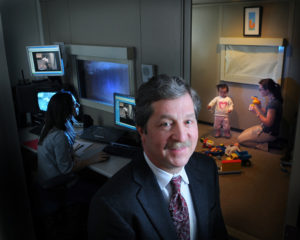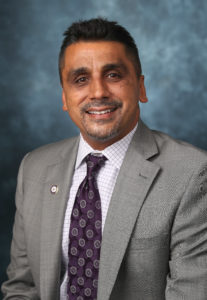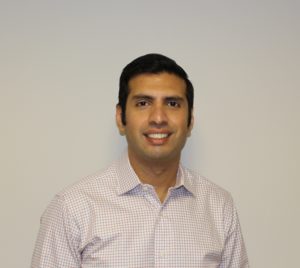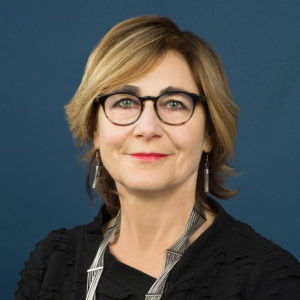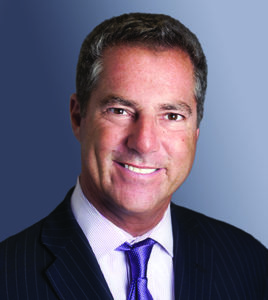Below are the biographies for CAP’s Art of Social Change: Child Welfare, Education, and Juvenile Justice spring 2019 speakers.
-
-
- Class 1 (Jan 31): Elizabeth Bartholet & Crisanne Hazen
- Class 2 (Feb 7): Charles Nelson
- Class 3 (Feb 14): Frank Vandervort, Vineesha Sow, & David Deakin
- Class 4 (Feb 21): Sameer Sabir, Dr. Sandeep Narang,& Martha Coakley
- Class 5 (Feb 28): James E. Dwyer & Meira Levinson
- Class 6 (Mar 7): Richard Kahlenberg & Richard Carranza
- Class 7 (Mar 14): John Affeldt & Katy Nuñez-Adler
- Class 8 (Mar 28): Mark Fiddler & Matthew McGill
- Class 9 (Apr 4): Lynette Tannis & Christy Sampson-Kelly
- Class 10 (Apr 11): Jacqueline Bhabha & Brad Karp
- Class 11 (Apr 18): Geoff Foster & Teens Leading the Way (TLTW) Youth Organizers
- Class 12 (Apr 25): Dr. Judith Edersheim & Karli Keator
-
Elizabeth Bartholet
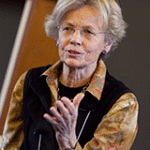 Elizabeth Bartholet is the Morris Wasserstein Public Interest Professor of Law and Faculty Director of the Child Advocacy Program (CAP) at Harvard Law School, where she teaches civil rights and family law, specializing in child welfare, adoption and reproductive technology. Before joining the Harvard Faculty, she was engaged in civil rights and public interest work, first with the NAACP Legal Defense Fund, and later as founder and director of the Legal Action Center, a non-profit organization in New York City focused on criminal justice and substance abuse issues.
Elizabeth Bartholet is the Morris Wasserstein Public Interest Professor of Law and Faculty Director of the Child Advocacy Program (CAP) at Harvard Law School, where she teaches civil rights and family law, specializing in child welfare, adoption and reproductive technology. Before joining the Harvard Faculty, she was engaged in civil rights and public interest work, first with the NAACP Legal Defense Fund, and later as founder and director of the Legal Action Center, a non-profit organization in New York City focused on criminal justice and substance abuse issues.
Crisanne Hazen
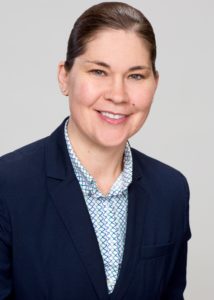 Crisanne Hazen is the Assistant Director of Harvard Law School’s Child Advocacy Program. Crisanne joined CAP in the summer of 2016. She came from San Jose, California, where she worked as a supervising attorney at Legal Advocates for Children and Youth (LACY), a program of the Law Foundation of Silicon Valley. Starting at LACY as an Equal Justice Works Fellow in 2006, Crisanne developed a “know your rights” curriculum for pregnant and parenting teens, which she taught at 6 area high schools. Over the 10 years at LACY, she represented hundreds of teen parents in family law and restraining order matters, as well as directly represented children and youth of all ages in a variety of civil proceedings including family law, guardianships, housing, benefits, special education, and school discipline. She helped to start and later manage a medical-legal partnership clinic in the Pediatric Department of Valley Medical Center in San Jose. She also managed other population-based projects, including a CSEC project, transition-age foster youth project, and a foster youth identity theft project. Crisanne is a graduate of Harvard University and the University of California-Davis School of Law.
Crisanne Hazen is the Assistant Director of Harvard Law School’s Child Advocacy Program. Crisanne joined CAP in the summer of 2016. She came from San Jose, California, where she worked as a supervising attorney at Legal Advocates for Children and Youth (LACY), a program of the Law Foundation of Silicon Valley. Starting at LACY as an Equal Justice Works Fellow in 2006, Crisanne developed a “know your rights” curriculum for pregnant and parenting teens, which she taught at 6 area high schools. Over the 10 years at LACY, she represented hundreds of teen parents in family law and restraining order matters, as well as directly represented children and youth of all ages in a variety of civil proceedings including family law, guardianships, housing, benefits, special education, and school discipline. She helped to start and later manage a medical-legal partnership clinic in the Pediatric Department of Valley Medical Center in San Jose. She also managed other population-based projects, including a CSEC project, transition-age foster youth project, and a foster youth identity theft project. Crisanne is a graduate of Harvard University and the University of California-Davis School of Law.
Charles Nelson
Charles A. Nelson III, PhD, is Professor of Pediatrics and Neuroscience and Professor of Psychology in the Department of Psychiatry at Harvard Medical School. Elsewhere at Harvard he holds faculty appointments in the Harvard School of Public Health and the Harvard Graduate School of Education, and sits on the steering committee for the Harvard Center on the Developing Child and the Harvard interfaculty initiative on Mind, Brain, and Behavior. In addition, he holds the Richard David Scott Chair in Pediatric Developmental Medicine Research at Boston Children’s Hospital, and is Director of Research in the Division of Developmental Medicine. His research interests center on a variety of problems in developmental cognitive neuroscience, including developmental trajectories to autism; and the effects of early adversity (including psychosocial deprivation) on brain and behavioral development. He chaired the John D. and Catherine T. MacArthur Foundation Research Network on Early Experience and Brain Development, and served on the National Academy of Sciences (NAS)
panels that wrote From Neurons to Neighborhoods, and more recently, New Directions in Child Abuse and Neglect Research. Among his many honors he has received the Leon Eisenberg award from Harvard Medical School, an honorary Doctorate from Bucharest University (Romania), was a resident fellow at the Rockefeller Foundation Bellagio Center (Italy), and has been elected to the American Academy of Arts and Sciences. In 2018, Nelson was elected to the National Academy of Medicine, one of the highest honors in health and medicine.
David Deakin
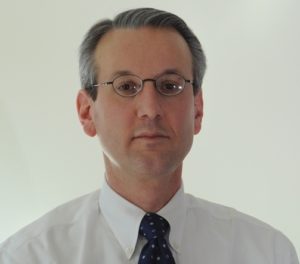 David Deakin is the chief of the Family Protection and Sexual Assault Bureau and Senior Counsel to the District Attorney in the Suffolk County District Attorney’s Office in Boston. He supervises teams of lawyers, victim witness advocates, forensic interviewers and investigators, who investigate and prosecute cases of physical and sexual abuse of children, child homicide, domestic violence, and adult sexual assault. Before becoming chief of the Family Protection and Sexual Assault Bureau in 2004, Mr. Deakin served as chief of the Child Abuse Unit since 1998, and before that, he worked as an assistant district attorney in the Child Abuse Unit. From 1992 to 1996, Mr. Deakin worked as a prosecutor in the Norfolk County District Attorney’s Office. Upon graduation from Harvard Law School in 1991, Mr. Deakin clerked for The Honorable Ruth I. Abrams, then an associate justice of the Massachusetts Supreme Judicial Court. Mr. Deakin holds bachelor’s degrees in English from Williams College and Oxford University.
David Deakin is the chief of the Family Protection and Sexual Assault Bureau and Senior Counsel to the District Attorney in the Suffolk County District Attorney’s Office in Boston. He supervises teams of lawyers, victim witness advocates, forensic interviewers and investigators, who investigate and prosecute cases of physical and sexual abuse of children, child homicide, domestic violence, and adult sexual assault. Before becoming chief of the Family Protection and Sexual Assault Bureau in 2004, Mr. Deakin served as chief of the Child Abuse Unit since 1998, and before that, he worked as an assistant district attorney in the Child Abuse Unit. From 1992 to 1996, Mr. Deakin worked as a prosecutor in the Norfolk County District Attorney’s Office. Upon graduation from Harvard Law School in 1991, Mr. Deakin clerked for The Honorable Ruth I. Abrams, then an associate justice of the Massachusetts Supreme Judicial Court. Mr. Deakin holds bachelor’s degrees in English from Williams College and Oxford University.
Vineesha Sow
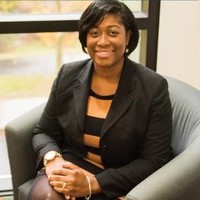 Vineesha Sow leads the Mental Health Advocacy Program (MHAP) For Kids in Boston, a program of Health Law Advocates (HLA), where she advocates for mental health services for children in, or at risk of entering, our juvenile justice system. Through her role she advocates for youth in a variety of areas including but not limited to the following: improving special education services and addressing school exclusion issues; securing and/or coordinating community-based mental health services; addressing denials of service from state agencies, including ensuring access to appropriate inpatient or outpatient mental/behavioral health and/or substance abuse services; and eliminating barriers to appropriate mental health service due to health insurance coverage issues.
Vineesha Sow leads the Mental Health Advocacy Program (MHAP) For Kids in Boston, a program of Health Law Advocates (HLA), where she advocates for mental health services for children in, or at risk of entering, our juvenile justice system. Through her role she advocates for youth in a variety of areas including but not limited to the following: improving special education services and addressing school exclusion issues; securing and/or coordinating community-based mental health services; addressing denials of service from state agencies, including ensuring access to appropriate inpatient or outpatient mental/behavioral health and/or substance abuse services; and eliminating barriers to appropriate mental health service due to health insurance coverage issues.
Prior to joining HLA, Vineesha was a Staff Attorney at the Children’s Law Center of Massachusetts where she focused on representing low-income children in special education and school discipline matters at school meetings and before the Bureau of Special Education Appeals.
She is passionate about ensuring that adolescents and young adults receive appropriate mental health services to divert from the juvenile justice system and increase educational success. She has conducted several trainings and lectures on the topics of school discipline and special education law for professionals, including attorneys, and other mental health service providers, law students and parents.
Vineesha dedicates time to several groups dedicated to youth advocacy such as the Boston Bar Service Innovation Project, focused on brainstorming ideas, policies and advocacy to help dismantle the Cradle/School-to-Prison Pipeline. She serves as a mentor to students with the Massachusetts Bar Association Tiered Community Mentorship program and participates in the Massachusetts Bar Association’s Leadership Academy, which develops young attorneys into leaders who will work diligently toward the improvement of the legal profession and society.
Vineesha is a Boston native and the product of Boston Public Schools. She earned her B.S., cum laude from Suffolk University and is a graduate of the University of San Francisco School of Law.
Frank Vandervort
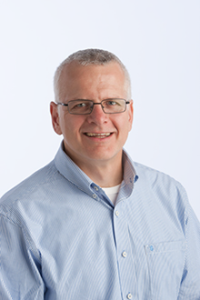 Frank E. Vandervort, JD, is a Clinical Professor of Law at the University of Michigan Law School where he co-founded and teaches the Juvenile Justice Clinic and also teaches in the Child Advocacy Law Clinic. He is the Immediate Past President of the American Professional Society on the Abuse of Children, and a former Chair of the Children’s Law Section of the State Bar of Michigan. Between 1999 and 2012, he served as an appointed member of Michigan’s Child Death Review State Advisory Committee and until 2015 was a member of Michigan’s Citizen Review Panel on Child Death, which reviews every child maltreatment related death in the state. He has been a practicing lawyer for 26 years and is a nationally recognized expert in the law relating to child abuse, neglect and juvenile delinquency. Professor Vandervort is a co-author of the book Seeking Justice in Child Sexual Abuse: Shifting Burdens and Sharing Responsibilities, numerous book chapters and scholarly articles. He is a frequent contributor to practice oriented legal publications. He previously served as a member of the Editorial Board of the Journal of Forensic Social Work and is an ad hoc peer reviewer for several scholarly journals, including the Journal of Interpersonal Violence, Child Maltreatment and Children and Youth Services Review. He is a recipient of the Pro Humanatate Award from the North American Resource Center on Child Welfare, the Betty Tableman award from the Michigan Association for Infant Mental Health, and the Ray Helfer Child Advocate of the Year Award from the Michigan Professional Society on the Abuse of Children. He was recognized with the 2016 Outstanding Service to APSAC Award by the American Professional Society on the Abuse of Children.
Frank E. Vandervort, JD, is a Clinical Professor of Law at the University of Michigan Law School where he co-founded and teaches the Juvenile Justice Clinic and also teaches in the Child Advocacy Law Clinic. He is the Immediate Past President of the American Professional Society on the Abuse of Children, and a former Chair of the Children’s Law Section of the State Bar of Michigan. Between 1999 and 2012, he served as an appointed member of Michigan’s Child Death Review State Advisory Committee and until 2015 was a member of Michigan’s Citizen Review Panel on Child Death, which reviews every child maltreatment related death in the state. He has been a practicing lawyer for 26 years and is a nationally recognized expert in the law relating to child abuse, neglect and juvenile delinquency. Professor Vandervort is a co-author of the book Seeking Justice in Child Sexual Abuse: Shifting Burdens and Sharing Responsibilities, numerous book chapters and scholarly articles. He is a frequent contributor to practice oriented legal publications. He previously served as a member of the Editorial Board of the Journal of Forensic Social Work and is an ad hoc peer reviewer for several scholarly journals, including the Journal of Interpersonal Violence, Child Maltreatment and Children and Youth Services Review. He is a recipient of the Pro Humanatate Award from the North American Resource Center on Child Welfare, the Betty Tableman award from the Michigan Association for Infant Mental Health, and the Ray Helfer Child Advocate of the Year Award from the Michigan Professional Society on the Abuse of Children. He was recognized with the 2016 Outstanding Service to APSAC Award by the American Professional Society on the Abuse of Children.
Dr. Sandeep Narang
Dr. Narang received his Bachelor of Arts from Auburn University, his Juris Doctorate from Vanderbilt University School of Law, and his medical degree from Georgetown University School of Medicine. He completed his Pediatrics residency at the National Naval Medical Center, Bethesda, MD in 2001, and his Child Abuse Pediatrics Fellowship at the Kempe Center for Child Abuse Prevention and Treatment at the Children’s Hospital of Colorado in 2010. He practiced as a trial attorney in the United States Navy Judge Advocate General’s Corps from 1993-1997, participating in over 40 contested jury and judge trials as both a prosecutor and defense counsel. He has served as a General Medical Officer on the USS Sacramento (AOE-1) during Operation Iraqi Freedom, a Department Head of Pediatrics at the Great Lakes Health Clinic in North Chicago, and as a Fellowship Director for Child Abuse Pediatrics at the University of Texas Health Science Centers—San Antonio & Houston. He assumed the position of Division Head of Child Abuse Pediatrics at Lurie Children’s Hospital in Chicago in July 2015. Dr. Narang is board certified in both General Pediatrics and Child Abuse Pediatrics, and has published on various medical and legal topics pertaining to Child Abuse. He is recognized as a national and international expert in Child Abuse and Neglect, with a specific emphasis in Abusive Head Trauma and Medico-legal Aspects of Child Maltreatment. He is the recent recipient of the Fulbright-Nehru Scholarship in 2014-2015, conducting child maltreatment research and education in various parts of India.
Sameer Sabir
In 2013, Mr. Sabir lost his daughter, Rehma, to probable abusive head trauma while in the hands of a babysitter. Although initially ruled by the state medical examiner as a homicide, a change in the medical examiner opinion resulted in no further legal prosecution of that babysitter.
Sameer Sabir is a healthcare entrepreneur. In addition to being an advocate for families of victims of child abuse, Mr. Sabir is the co-founder and CEO of SevenOaks Biosystems and was the co-founder and CEO of MoMelan Technologies, Inc. Sameer is a graduate of the Harvard-MIT Biomedical Enterprise Program through which he earned an MBA from the MIT Sloan School of Management and an SM from the Harvard-MIT Division of Health Sciences and Technology.
Martha Coakley
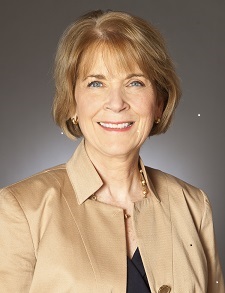 Martha Coakley has been a trial attorney for almost four decades. With civil litigation experience at two firms in Boston, twenty years as a prosecutor in the Middlesex District Attorney’s office and service as a Field Attorney for the Department of Justice in the Boston Organized Strike Force, she has tried hundreds of civil and criminal cases including high profile cases. As Chief of the Middlesex Child Abuse Prosecution Unit from 1991-1996, she oversaw the investigation and prosecution of thousands of physical and sexual child abuse cases including as Comm. v. Louise Woodward. She served as Middlesex District Attorney from 1999-2006.
Martha Coakley has been a trial attorney for almost four decades. With civil litigation experience at two firms in Boston, twenty years as a prosecutor in the Middlesex District Attorney’s office and service as a Field Attorney for the Department of Justice in the Boston Organized Strike Force, she has tried hundreds of civil and criminal cases including high profile cases. As Chief of the Middlesex Child Abuse Prosecution Unit from 1991-1996, she oversaw the investigation and prosecution of thousands of physical and sexual child abuse cases including as Comm. v. Louise Woodward. She served as Middlesex District Attorney from 1999-2006.
As the first female Attorney General of Massachusetts, Martha Coakley served from 2007-2015. She served as a Resident Fellow at the Harvard Institute of Politics, John F. Kennedy School of Government in 2015. Martha has been a national leader in consumer protection, civil rights, and cyber-crime. NAAG recognized her outstanding accomplishments in 2014 when she received the Kelley-Wyman Award, given annual to the Attorney General who has done the most to achieve NAAG objectives.
Martha graduated from Williams College and the Boston University School of Law. She is a Partner at Foley Hoag LLC where she focuses on government and internal investigations, litigation, data privacy and security, and healthcare.
James E. Dwyer
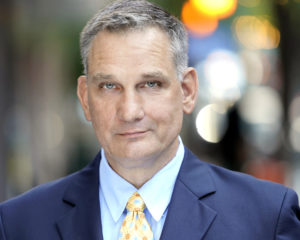 Professor Dwyer has been on the faculty at William & Mary School of Law since 2000. He teaches Family Law, Youth Law, Law & Social Justice, and Trusts & Estates. His early scholarship was devoted to children’s rights in connection with education; he authored two books about the state’s stance toward private schools, especially religious schools—in particular, whether the state ought to regulate and oversee such schools to a greater extent in order to prevent educational deprivation and psychological or physical abuse (Religious Schools v. Children’s Rights, Cornell University Press 1998), and whether and on what conditions the state may, or even must, financially support religious schools (Vouchers Within Reason: A Child-Centered Approach to Education Reform, Cornell University Press 2002). Professor Dwyer returns to the realm of education with his latest book, a co-authored work entitled Homeschooling: Historical and Philosophical Perspectives (University of Chicago Press, forthcoming 2019). In the interim, Dwyer has focused his attention on preventing child maltreatment in the home, making a number of bold child-centered proposals that he pulled together in a book released this year, Liberal Child Welfare Policy and Its Destruction of Black Lives (Routledge 2018).
Professor Dwyer has been on the faculty at William & Mary School of Law since 2000. He teaches Family Law, Youth Law, Law & Social Justice, and Trusts & Estates. His early scholarship was devoted to children’s rights in connection with education; he authored two books about the state’s stance toward private schools, especially religious schools—in particular, whether the state ought to regulate and oversee such schools to a greater extent in order to prevent educational deprivation and psychological or physical abuse (Religious Schools v. Children’s Rights, Cornell University Press 1998), and whether and on what conditions the state may, or even must, financially support religious schools (Vouchers Within Reason: A Child-Centered Approach to Education Reform, Cornell University Press 2002). Professor Dwyer returns to the realm of education with his latest book, a co-authored work entitled Homeschooling: Historical and Philosophical Perspectives (University of Chicago Press, forthcoming 2019). In the interim, Dwyer has focused his attention on preventing child maltreatment in the home, making a number of bold child-centered proposals that he pulled together in a book released this year, Liberal Child Welfare Policy and Its Destruction of Black Lives (Routledge 2018).
Meira Levinson
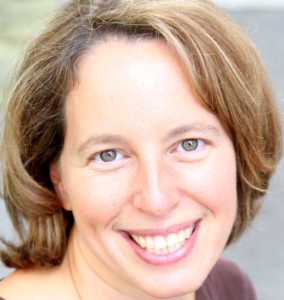 Meira Levinson is Professor of Education at Harvard. After earning her doctorate in political theory from Nuffield College, Oxford, but prior to joining the Harvard faculty, Meira spent nearly a decade as an eighth grade teacher in the Atlanta and Boston Public Schools. In part as a consequence, she is interested in youth empowerment, civic and multicultural education, educational ethics, urban schools, and race. She is the author or co-editor of six books, including Making Civics Count, No Citizen Left Behind, Dilemmas of Educational Ethics, and Democratic Discord in Schools. Meira’s current research combines case studies and philosophical analysis to develop a new field of educational ethics. Modeled after bioethics, educational ethics is intended to give educators and policy makers tools for making ethical decisions in their own work, and also to push political theorists to develop theories of justice that are robust enough to address complex dilemmas that arise in classrooms, schools, and systems.
Meira Levinson is Professor of Education at Harvard. After earning her doctorate in political theory from Nuffield College, Oxford, but prior to joining the Harvard faculty, Meira spent nearly a decade as an eighth grade teacher in the Atlanta and Boston Public Schools. In part as a consequence, she is interested in youth empowerment, civic and multicultural education, educational ethics, urban schools, and race. She is the author or co-editor of six books, including Making Civics Count, No Citizen Left Behind, Dilemmas of Educational Ethics, and Democratic Discord in Schools. Meira’s current research combines case studies and philosophical analysis to develop a new field of educational ethics. Modeled after bioethics, educational ethics is intended to give educators and policy makers tools for making ethical decisions in their own work, and also to push political theorists to develop theories of justice that are robust enough to address complex dilemmas that arise in classrooms, schools, and systems.
In addition to conducting research resulting in academic articles and books, Meira is committed to making research findings and tools accessible to educators, policymakers, parents, and other members of the general public. Her website justiceinschools.org features numerous open-access ethical case studies, articles, discussion protocols, and other resources. In the area of civic education, Meira has contributed to numerous policy and practice initiatives in civics, including youthinfront.org, an online learning initiative designed to support student activists and adult allies, and the “College, Career, and Civic Life (C3) Framework for Social Studies State Standards,” which has guided state standards revisions in over a dozen states. She also spearheads Instructional Moves, an open access initiative which aims help college and university educators learn and refine high-leverage teaching practices. These projects, as with her own research, reflect Meira’s commitment to achieving productive cross-fertilization—without loss of rigor—among scholarship, policy, and practice.
Richard Carranza
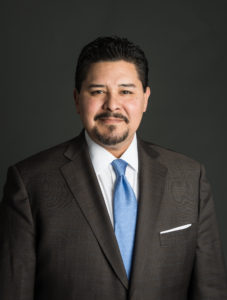
Richard A. Carranza is Chancellor of the New York City Department of Education, the largest school system in the nation. He is responsible for educating 1.1 million students in over 1,800 schools.
During Carranza’s nearly 30 years in education, he has served in virtually every role. Prior to New York City, he was the superintendent of the Houston Independent School District, the largest school district in Texas, and the seventh largest in the United States. Before that, he served the San Francisco Unified School District, first as deputy superintendent and then as superintendent. Before moving to San Francisco, Carranza was the Northwest Region superintendent for the Clark County School District in Las Vegas. He began his career as a high school, bilingual social studies and music teacher, and then as a principal, both in Tucson, Arizona.
A son of a sheet metal worker and a hairdresser—and a grandson of Mexican immigrants—Carranza credits his public school education for putting him on a path to college and a successful career. He believes that a great education changes lives, and is excited to help the next generation of New Yorkers achieve their dreams. As Chancellor, he is building on the City’s Equity and Excellence for All agenda, which supports students academically, socially, and emotionally from early childhood through twelfth grade. He is also championing initiatives to help educators strengthen their practice and to empower more parents to become engaged in their children’s education.
Carranza is the past chairman of the Board of Directors for the Council of the Great City Schools, where he served as a national spokesperson on significant issues facing urban school districts. He also served on the Board of Directors of the Association of Latino Administrators and Superintendents, the National Commission on Teaching and America’s Future, the American Association of School Administrators Executive Committee, and the K to College Advisory Board.
Education Week profiled Carranza as a national 2015 Leader to Learn From. He earned a Bachelor of Arts degree in secondary education from the University of Arizona and a Master of Education with distinction in educational leadership from Northern Arizona University. He completed his doctoral coursework in educational leadership through Northern Arizona University and Nova Southeastern University.
Carranza is a fluent Spanish-speaker and an accomplished mariachi musician. He is married to Monique and has two daughters.
Richard Kahlenberg
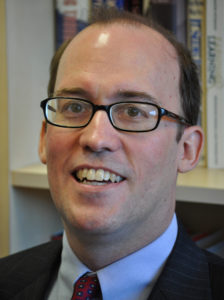 Richard D. Kahlenberg is a senior fellow at The Century Foundation with expertise in education, civil rights, and equal opportunity. Kahlenberg has been called “the intellectual father of the economic integration movement” in K-12 schooling and “arguably the nation’s chief proponent of class-based affirmative action in higher education admissions.” He is also an authority on teachers’ unions, private school vouchers, charter schools, turnaround school efforts, labor organizing and inequality in higher education. He is the author of six books: A Smarter Charter: Finding What Works for Charter Schools and Public Education (with Halley Potter) (Teachers College Press, 2014), Why Labor Organizing Should Be a Civil Right: Rebuilding a Middle-Class Democracy by Enhancing Worker Voice (with Moshe Marvit) (Century Foundation Press, 2012); Tough Liberal: Albert Shanker and the Battles Over Schools, Unions, Race and Democracy (Columbia University Press, 2007); All Together Now: Creating Middle Class Schools through Public School Choice (Brookings Institution Press, 2001); The Remedy: Class, Race, and Affirmative Action (Basic Books, 1996); and Broken Contract: A Memoir of Harvard Law School (Hill & Wang/Farrar, Straus & Giroux, 1992.)
Richard D. Kahlenberg is a senior fellow at The Century Foundation with expertise in education, civil rights, and equal opportunity. Kahlenberg has been called “the intellectual father of the economic integration movement” in K-12 schooling and “arguably the nation’s chief proponent of class-based affirmative action in higher education admissions.” He is also an authority on teachers’ unions, private school vouchers, charter schools, turnaround school efforts, labor organizing and inequality in higher education. He is the author of six books: A Smarter Charter: Finding What Works for Charter Schools and Public Education (with Halley Potter) (Teachers College Press, 2014), Why Labor Organizing Should Be a Civil Right: Rebuilding a Middle-Class Democracy by Enhancing Worker Voice (with Moshe Marvit) (Century Foundation Press, 2012); Tough Liberal: Albert Shanker and the Battles Over Schools, Unions, Race and Democracy (Columbia University Press, 2007); All Together Now: Creating Middle Class Schools through Public School Choice (Brookings Institution Press, 2001); The Remedy: Class, Race, and Affirmative Action (Basic Books, 1996); and Broken Contract: A Memoir of Harvard Law School (Hill & Wang/Farrar, Straus & Giroux, 1992.)
In addition, Kahlenberg is the editor of ten Century Foundation books: The Future of Affirmative Action: New Paths to Higher Education Diversity after Fisher v. University of Texas (2014); Bridging the Higher Education Divide: Strengthening Community Colleges and Restoring the American Dream, Chaired by Anthony Marx and Eduardo Padron (Executive Director) (2013); The Future of School Integration: Socioeconomic Diversity as an Education Reform Strategy (2012); Affirmative Action for the Rich: Legacy Preferences in College Admissions (2010); Rewarding Strivers: Helping Low-Income Students Succeed in College (2010); Improving on No Child Left Behind: Getting Education Reform Back on Track (2008); America’s Untapped Resource: Low-Income Students in Higher Education (2004); Public School Choice vs. Private School Vouchers (2003); Divided We Fail: Coming Together Through Public School Choice. The Report of The Century Foundation Task Force on the Common School, Chaired by Lowell Weicker (Executive Director) (2002); and A Notion at Risk: Preserving Public Education as an Engine for Social Mobility (2000). Kahlenberg’s articles have been published in The New York Times, The Washington Post, The Wall Street Journal, The New Republic, and elsewhere. He has appeared on ABC, CBS, CNN, FOX, C-SPAN, MSNBC, and NPR.
Previously, Kahlenberg was a Fellow at the Center for National Policy, a visiting associate professor of constitutional law at George Washington University, and a legislative assistant to Senator Charles S. Robb (D-VA). He also serves on the advisory board of the Pell Institute, the Albert Shanker Institute and the Research Advisory Panel of the National Coalition for School Diversity. In addition, he is the winner of the William A. Kaplin Award for Excellence in Higher Education Law and Policy Scholarship. Reflecting on Kahlenberg’s work on higher education, William G. Bowen and Michael S. McPherson wrote that he “deserves more credit than anyone else for arguing vigorously and relentlessly for stronger efforts to address disparities by socioeconomic status.” He graduated magna cum laude from Harvard College in 1985 and cum laude from Harvard Law School in 1989.
John Affeldt
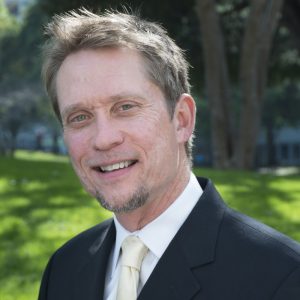 John Affeldt is a managing attorney at Public Advocates in San Francisco, where he focuses on educational equity issues through litigation, policy advocacy and partnerships with grassroots organizations. John served as a lead counsel on Williams v. California, which resulted in a breakthrough 2004 settlement guaranteeing California’s students sufficient instructional materials, decent facilities and qualified teachers. He is also lead counsel on Community Coalition v. LAUSD, a challenge to the district’s undercounting its obligation to support high need students by $450 million annually, and the Campaign for Quality Education v. California suit challenging the state’s underfunding of public schools.
John Affeldt is a managing attorney at Public Advocates in San Francisco, where he focuses on educational equity issues through litigation, policy advocacy and partnerships with grassroots organizations. John served as a lead counsel on Williams v. California, which resulted in a breakthrough 2004 settlement guaranteeing California’s students sufficient instructional materials, decent facilities and qualified teachers. He is also lead counsel on Community Coalition v. LAUSD, a challenge to the district’s undercounting its obligation to support high need students by $450 million annually, and the Campaign for Quality Education v. California suit challenging the state’s underfunding of public schools.
John brought the only lawsuits in the country to enforce the teacher quality provisions of the federal No Child Left Behind Act, which required states and districts to provide fully credentialed teachers in equal measure to low-income students and students of color. These actions led to a state court voiding the improper labeling of some 4,000 provisionally-certified teachers as “highly qualified” and a Ninth Circuit, U.S. Court of Appeals ruling striking down a federal regulation that unlawfully labeled teachers still in training across the nation as “highly qualified.”
John has worked on numerous school finance, teacher quality, equitable opportunity and accountability policies in Sacramento. In 2013 and 2014, John helped to shape several key provisions of California’s new school funding law known as the Local Control Funding Formula (LCFF). These new laws require schools to provide increased or improved services for high need students in proportion to the billions of dollars of additional funds generated by such students, establish parental involvement as a new state priority, and require new levels of community engagement and transparency in school planning and budgeting statewide.
John is a founding member of various grassroots, community-based and advocacy coalitions working on statewide policy advocacy campaigns to improve educational opportunities for low-income students of color and to build power in low-income communities.
John has been recognized as an Attorney of the Year in California three times, in 2010 by The Recorder, and twice by the California Lawyer magazine, once in 2005 and again, most recently, in 2018. John graduated cum laude from Harvard Law School in 1990 and Phi Beta Kappa from Stanford University in 1984.
Katy Nuñez-Adler
Katy was born in Oakland, California and raised in a diverse low-income community in Berkeley during the Free Speech Movement. As a high school student in the early 1980s, she became active in organizing around opposition to US intervention in Central American. Later, she became involved in organizing around racial and economic justice movements locally, nationally, and internationally, including the anti-apartheid movement, and the fights against the passage of Propositions 187 and 227 in California.
In 1994, Katy began working with the Justice for Janitors campaign as a union organizer, supporting workers, who were primarily undocumented immigrants, in organizing for dignity and respect in the workplace, health care for their families, and changes to unjust immigration policies. She continued working for 15 years as a union organizer – working with allies for racial, gender, immigrant, and economic justice.
Since 2011, Katy has worked as a community organizer with Oakland Community Organizations (OCO), a multiracial, multicultural and multi-faith organization that supports community leaders in organizing to transform their own lives, and the lives of their families and communities. OCO leaders organize campaigns focused on education equity, economic dignity, affordable housing, immigrant rights, and ending mass incarceration.
OCO is a member federation of PICO California – People Improving Communities through Organizing. OCO helps lead PICO California’s Statewide Education for Liberation Campaign. PICO California is organizing parents, teachers, students, and community members to ensure that every child has the opportunity for an excellent public education. PICO works for equitable and consistent funding for schools, improved teacher quality, and meaningful opportunities for parents and communities to partner with schools and districts for student success. Recognizing that far too often K-12 public schools serve as feeder to the criminal justice system, PICO focuses significant energy through various state and local policy efforts to dismantle the school to prison pipeline.
Mark Fiddler
 Mark Fiddler is a registered member of the Turtle Mountain Band of Chippewa Indian and is a private practice attorney in Minnesota who specializes in the areas of adoption, foster care, third party custody, and the Indian Child Welfare Act (ICWA). He was named one of “Minnesota Lawyer Attorneys of the Year” for 2013. He is a fellow and former trustee of the American Academy of Adoption Attorneys and is Chair of its ICWA Committee.
Mark Fiddler is a registered member of the Turtle Mountain Band of Chippewa Indian and is a private practice attorney in Minnesota who specializes in the areas of adoption, foster care, third party custody, and the Indian Child Welfare Act (ICWA). He was named one of “Minnesota Lawyer Attorneys of the Year” for 2013. He is a fellow and former trustee of the American Academy of Adoption Attorneys and is Chair of its ICWA Committee.
Mark is the founding director of the Indian Child Welfare Law Center. He has litigated Indian Child Welfare cases in the United States Supreme Court, including the landmark case, Adoptive Couple v. Baby Girl, and in appellate and trial courts throughout the United States.
Matthew McGill
 Matthew D. McGill is a partner in the Washington, D.C. office of Gibson, Dunn & Crutcher. He practices in the firm’s Litigation Department and its Appellate and Constitutional Law practice group.
Matthew D. McGill is a partner in the Washington, D.C. office of Gibson, Dunn & Crutcher. He practices in the firm’s Litigation Department and its Appellate and Constitutional Law practice group.
He has participated in 21 cases before the Supreme Court of the United States, prevailing in 16, including: Murphy v. NCAA (2018) – This “historic decision” (Sports Illustrated) cleared the path for States legalize sports betting; Hollingsworth v. Perry (2013) – This “historic” decision (Washington Post) secured the right of same-sex couples in California to marry; and Citizens United v. Federal Election Commission (2010) – Hailed by the New York Times as a “doctrinal earthquake,” this decision overruled two Supreme Court precedents and established the First Amendment right of corporations to spend general treasury funds on speech activities to influence the outcomes of elections.
Mr. McGill maintains an active pro bono practice. He currently represents three adoptive couples in a constitutional challenge to the Indian Child Welfare Act, and he represents persons born in American Samoa in their constitutional challenge to a federal statute that designates them “non-citizen nationals.” In 2008, he successfully defended Senator John McCain in cases contending that Senator McCain was not a “natural-born citizen” and therefore was ineligible to be President.
Prior to joining Gibson Dunn, Mr. McGill served as a Bristow Fellow in the Office of the Solicitor General at the U.S. Department of Justice. He clerked for the Hon. Joseph M. McLaughlin of the U.S. Court of Appeals for the Second Circuit and the Hon. John G. Roberts, Jr. of the U.S. Court of Appeals for the D.C. Circuit. Mr. McGill graduated, magna cum laude, from Dartmouth College in 1996. In 2000, he graduated from Stanford Law School, where he was elected to the Order of the Coif.
Lynette Tannis
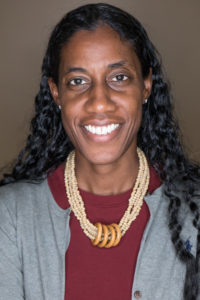 At a young age, Lynette recognized grave educational inequalities existed depending on what a person looked like and where a person lived. Since 1995, she has served in myriad educational roles including teacher, coach, literacy coordinator, school/district administrator, professional developer, researcher, lecturer, education consultant, and education delegate throughout the United States and within five continents.
At a young age, Lynette recognized grave educational inequalities existed depending on what a person looked like and where a person lived. Since 1995, she has served in myriad educational roles including teacher, coach, literacy coordinator, school/district administrator, professional developer, researcher, lecturer, education consultant, and education delegate throughout the United States and within five continents.
She is currently on faculty at the Harvard Graduate School of Education where she teaches, Educating Incarcerated Youth: Practice, Research, and Policy. She also conducts research for HGSE’s Partnership for Just Educators. Her current work as an adjunct lecturer, researcher, and independent education consultant focuses on ensuring all students – no matter what they look like or where they live; whether free or incarcerated – receive the high-quality public education they deserve.
She is the author of Educating Incarcerated Youth: Exploring the Impact of Relationships, Expectations, Resources and Accountability (Palgrave Macmillan, 2014) and is recognized as an expert on juvenile justice education. Her work is featured in the Harvard Educational Review (2017), the National Association for Public Defense (2016), educationpost (2015), Education Week (2014), and the Harvard Ed. Magazine (2015, 2014, 2013).
Lynette holds both a Doctor of Education degree (2013) and a Master’s of Education Policy and Management degree (2010) from Harvard University, a Master’s degree With Distinction in Educational Administration from Kean University (2003), and a Bachelor’s degree Cum Laude in Elementary Education from Greensboro College (1995).
Christy Sampson-Kelly
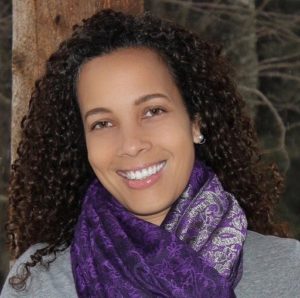 Christy Sampson-Kelly is a tireless advocate for a particularly vulnerable group of young people, those with special needs confined in juvenile justice and adult facilities. Currently serving as the Director of Schools for the Center for Educational Excellence in Alternative Settings (CEEAS). Christy leads the Travis Hill School campuses, located inside the New Orleans juvenile detention center adult jail, in implementing transformational, person-centered practices, designed to contribute to the lived experiences of young people held there. She also provides direct coaching to schools inside locked facilities across the country in the areas of curriculum and instruction, student engagement, positive behavioral support, and restorative practices–all with a keen focus on helping schools improve how they teach and support students with special needs. Before joining CEEAS, she worked for more than 10 years with at-promise youth as a classroom teacher and then as a school-wide special education coordinator. Christy earned her BS in elementary education from the University of Maryland, her MA in special education from San Diego State University, and her PhD in special education, also from the University of Maryland.
Christy Sampson-Kelly is a tireless advocate for a particularly vulnerable group of young people, those with special needs confined in juvenile justice and adult facilities. Currently serving as the Director of Schools for the Center for Educational Excellence in Alternative Settings (CEEAS). Christy leads the Travis Hill School campuses, located inside the New Orleans juvenile detention center adult jail, in implementing transformational, person-centered practices, designed to contribute to the lived experiences of young people held there. She also provides direct coaching to schools inside locked facilities across the country in the areas of curriculum and instruction, student engagement, positive behavioral support, and restorative practices–all with a keen focus on helping schools improve how they teach and support students with special needs. Before joining CEEAS, she worked for more than 10 years with at-promise youth as a classroom teacher and then as a school-wide special education coordinator. Christy earned her BS in elementary education from the University of Maryland, her MA in special education from San Diego State University, and her PhD in special education, also from the University of Maryland.
Jacqueline Bhabha
Jacqueline Bhabha, JD, MSc, is a Professor of the Practice of Health and Human Rights at the Harvard Chan School of Public Health. She is Director of Research at the Harvard FXB Center for Health and Human Rights, the Jeremiah Smith Jr. Lecturer in Law at Harvard Law School, and an Adjunct Lecturer in Public Policy at the Harvard Kennedy School. She received a first class honors degree and a M.Sc. from Oxford University, and a J.D. from the College of Law in London.
From 1997 to 2001 she directed the Human Rights Program at the University of Chicago. Prior to 1997, she was a practicing human rights lawyer in London and at the European Court of Human Rights in Strasbourg. She has published extensively on issues of transnational child migration, refugee protection, children’s rights and citizenship. She is the editor of Children Without A State (MIT Press 2011), author of Child Migration and Human Rights in a Global Age (Princeton University Press, 2014), editor of Human Rights and Adolescence (U Penn Press, 2014) and the co-editor of Realizing Roma Rights (U Penn Press, 2017) and Research Handbook on Child Migration (Edward Elgar Press, 2018). Her most recent book published in 2018 is entitled “Can We Solve the Migration Crisis” (Polity Press, 2018).
She serves on the board of the Scholars at Risk Network, the World Peace Foundation, the Institute on Statelessness and Inclusion, and the Journal of Refugee Studies. She is a frequent adviser to UNHCR, UNICEF, IOM and civil society organizations working on forced migration-related issues.
Brad Karp
Chairman of Paul, Weiss, Rifkind, Wharton & Garrison since 2008, Brad S. Karp is one of the country’s leading litigators and corporate advisers. Brad has successfully defended financial institutions and other companies in numerous “bet the company” litigations, regulatory matters and internal investigations. In 2018, Brad received the Special Achievement Award from the Financial Times in recognition of his legal achievements and leadership of Paul, Weiss and was also named “Attorney of the Year” by the New York Law Journal, “Litigator of the Year” by The American Lawyer, “Sports MVP of the Year” by Law360, and “Securities Lawyer of the Year” by Best Lawyers.
Brad is very active in pro bono matters, and has received more than a dozen recognitions for his charitable service, including the Servant of Justice Award by the Legal Aid Society, the Judge Learned Hand Award by AJC, the Human Relations Award by the Anti-Defamation League, the Arthur Liman Public Interest Award by the Legal Action Center, the Impact Award by The New York Law Journal, and the Judge Simon Rifkind Award by The Jewish Theological Seminary. Brad is a trustee or director of more than 25 public interest and educational institution boards, and serves as chairman of the Legal Action Center, chair of Harvard Law School’s Annual Fund, chair of his 35th HLS Reunion Class, and a member of the Law School’s Advisory Council.
Brad frequently speaks and writes about pressing issues of social justice. Most recently, in 2018, Brad authored two op-eds in The New York Times, “Stop Shielding Gun Makers,” advocating changes to laws related to gun manufacturer liability, and “An Army of Lawyers for Migrants,” urging the private bar to address the unlawful treatment of immigrants and to seek the reunification of separated families, as well as an op-ed in the New York Law Journal, “Democracy Itself Is on The Ballot,” addressing the issue of voter suppression and disenfranchisement.
Brad is a 1984 graduate of Harvard Law School and clerked for The Honorable Irving R. Kaufman, former Chief Judge of the Second Circuit Court of Appeals. Brad has spent his entire professional career at Paul, Weiss.
Geoff Foster
 Geoff Foster is the Director of Organizing and Policymaking at UTEC in Lowell, Massachusetts. With over fourteen years’ experience in youth work, community organizing and campaign management, Geoff is responsible for managing UTEC’s policy and budget platform which includes young adult justice reform and ending multi-generational poverty. Geoff also oversees UTEC’s community organizing programs including a statewide youth-led policy-making coalition called “Teens Leading The Way” which trains young adults to run their own policy campaign. Geoff most recently worked with the Massachusetts State Legislature to pass legislation for expungement and civics education and was named Youth Worker of the Year in 2013.
Geoff Foster is the Director of Organizing and Policymaking at UTEC in Lowell, Massachusetts. With over fourteen years’ experience in youth work, community organizing and campaign management, Geoff is responsible for managing UTEC’s policy and budget platform which includes young adult justice reform and ending multi-generational poverty. Geoff also oversees UTEC’s community organizing programs including a statewide youth-led policy-making coalition called “Teens Leading The Way” which trains young adults to run their own policy campaign. Geoff most recently worked with the Massachusetts State Legislature to pass legislation for expungement and civics education and was named Youth Worker of the Year in 2013.
Dr. Judith Edersheim
 Judith G. Edersheim is a graduate of Brown University, Harvard Law School, and Harvard Medical School and served as a law clerk to the Hon. Robert W. Sweet in the Federal District Court in Southern District of New York. Dr. Edersheim practiced trial and corporate law with the Boston law firm of Hill and Barlow and is a member of the bar of the Commonwealth of Massachusetts. She did her adult psychiatry residency at the Cambridge Hospital and completed forensic fellowship training at the Law and Psychiatry Service of Massachusetts General Hospital. Dr. Edersheim is licensed to practice medicine in the Commonwealth of Massachusetts and is board certified by the American Board of Psychiatry and Neurology, with Added Qualifications in Forensic Psychiatry.
Judith G. Edersheim is a graduate of Brown University, Harvard Law School, and Harvard Medical School and served as a law clerk to the Hon. Robert W. Sweet in the Federal District Court in Southern District of New York. Dr. Edersheim practiced trial and corporate law with the Boston law firm of Hill and Barlow and is a member of the bar of the Commonwealth of Massachusetts. She did her adult psychiatry residency at the Cambridge Hospital and completed forensic fellowship training at the Law and Psychiatry Service of Massachusetts General Hospital. Dr. Edersheim is licensed to practice medicine in the Commonwealth of Massachusetts and is board certified by the American Board of Psychiatry and Neurology, with Added Qualifications in Forensic Psychiatry.
Dr. Edersheim is the founding co-director of the Massachusetts General Hospital Center for Law, Brain and Behavior. The Center brings insights from neuroscience, neurology and psychiatry into the legal arena in an effort to improve the justice system. In addition, Dr. Edersheim performs a broad range of psychiatric evaluations in criminal and civil contexts, including evaluations of transactional capacity and criminal responsibility. Dr. Edersheim lectures extensively in state and federal court settings, as well in the teaching programs of Massachusetts General Hospital, Harvard Medical School and Harvard Law School. She has published scholarly articles, book chapters and editorials on law and neuroscience as well as appearing on popular media outlets regarding these subjects.
She is member of the American Academy of Psychiatry and the Law, the American Psychiatric Association, the Boston Society for Neurology and Psychiatry. She is also a member of several public sector mental health and non-profit boards of directors, including the Massachusetts Mental Health Legal Advisors Committee and the Board of Governors of Tel Aviv University.
Karli Keator
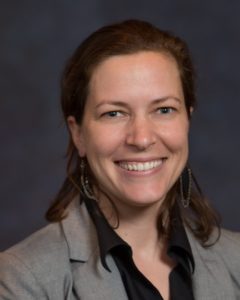 Karli J. Keator, M.P.H. is Director of the National Center for Youth Opportunity and Justice (NCYOJ) and Program Area Director at Policy Research Associates (PRA) for children’s behavioral health, trauma and juvenile justice initiatives. Since joining PRA in 2006, Ms. Keator has participated in a variety of research, and policy development and implementation initiatives. Specific areas of interest include activities that support development of evidence-informed public policy to: identify and respond to the mental health, substance use, and traumatic stress needs among children and adolescents in contact with the juvenile justice system; reduce behavioral healthcare disparities among children and adolescents; and address issues related to inadequate access to and availability of behavioral healthcare.
Karli J. Keator, M.P.H. is Director of the National Center for Youth Opportunity and Justice (NCYOJ) and Program Area Director at Policy Research Associates (PRA) for children’s behavioral health, trauma and juvenile justice initiatives. Since joining PRA in 2006, Ms. Keator has participated in a variety of research, and policy development and implementation initiatives. Specific areas of interest include activities that support development of evidence-informed public policy to: identify and respond to the mental health, substance use, and traumatic stress needs among children and adolescents in contact with the juvenile justice system; reduce behavioral healthcare disparities among children and adolescents; and address issues related to inadequate access to and availability of behavioral healthcare.
Currently, Ms. Keator is the co-PI on two research initiatives, one of which seeks to develop and test a trauma-informed decision protocol for juvenile justice practitioners with funding from the Office of Juvenile Justice and Delinquency Prevention, and the second which aims to test interventions that keep kids with behavioral health and trauma needs in school and out of the juvenile justice system with funding from the National Institute for Justice. She also serves the policy lead on the Defending Childhood American Indian/Alaska Native Policy Initiative.
Ms. Keator received her Master of Public Health, with a focus in Social Behavior and Community Health, from the University at Albany’s School of Public Health.

